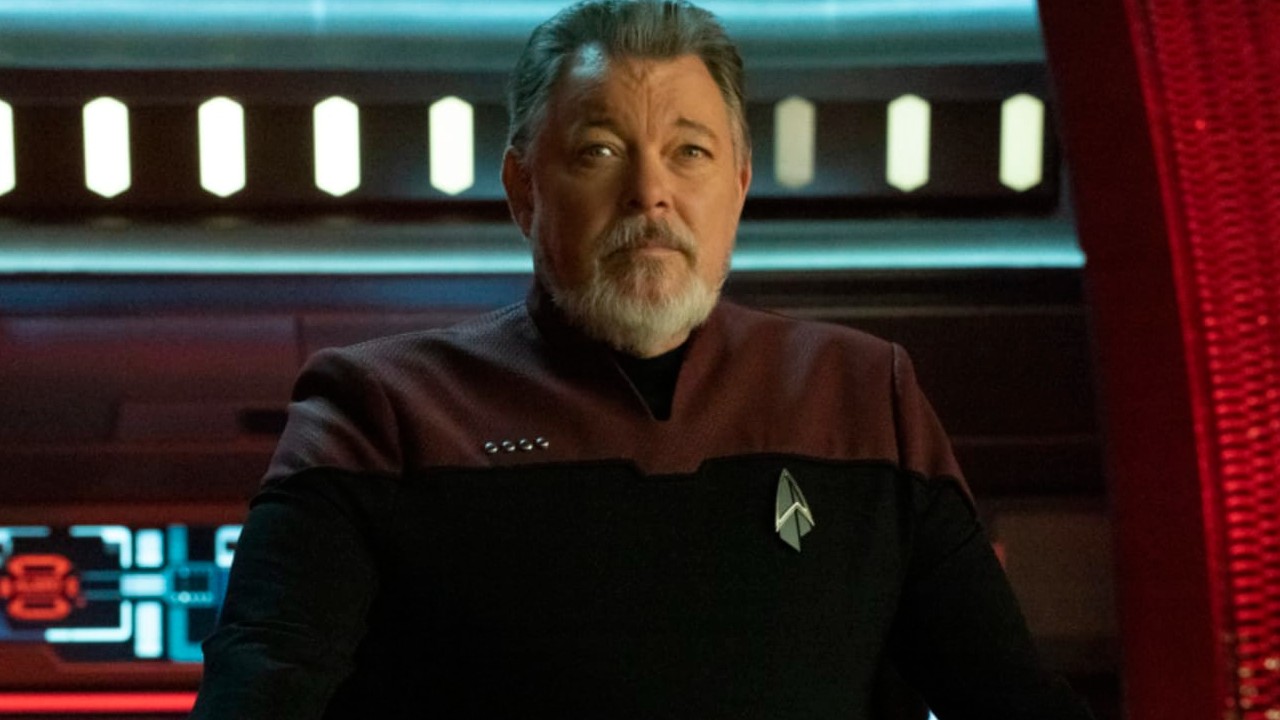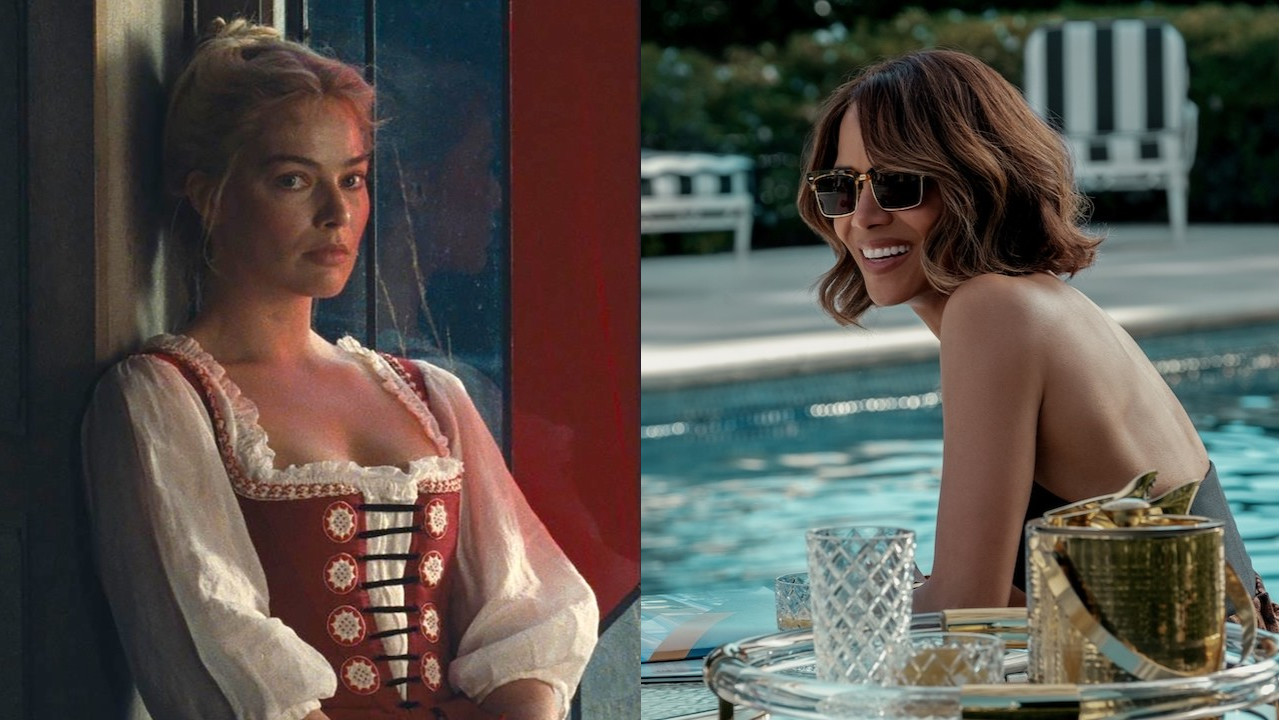Star Trek's Jonathan Frakes On His Intense Discovery Episode, And How Directing Has Impacted His View Of The Franchise
The iconic actor and director talked Trek.

Your Daily Blend of Entertainment News
You are now subscribed
Your newsletter sign-up was successful
Warning! The following contains spoilers from the Star Trek: Discovery episode “Stormy Weather.” Read at your own risk!
Michael Burnham and the Star Trek: Discovery crew decided to try and get to the bottom of the Dark Matter Anomaly through an excursion into a void and found nothing. Unfortunately for the crew, that “nothing” was actually destroying all matter around them, and the entire ship nearly disintegrated until Michael’s quick thinking saved them from an assured death. It’s a tense episode, despite the fact that the main enemy of the episode is unseen and, to the viewer, literally a black void.
As Star Trek: Discovery’s most heart-pounding installment of Season 4 so far, “Stormy Weather” is directed by none other than Star Trek veteran Jonathan Frakes, who was kind enough to speak to me ahead of Burnham’s biggest challenge as Captain yet. I asked Frakes how the episode was able to maintain a tense atmosphere despite it literally being staged around a black void, and he broke it down:
As a matter of fact, the script comments on that very reality. Captain Burnham says, ‘Bring up the visuals,’ and Owosekun says, ‘Those are the visuals.’ Since she’s staring into a black hole with all the rest of us. It’s acting, writing. The visual effects are spectacular in our show, and ironically, there's literally nothing in the system [or] the view screen. Everything is going on people's faces, which is often a good thing. [Visual effects] can be a crutch. The question, as I said, is wonderful because the characters express the same frustration. The audience and the characters are sharing, ‘What the hell? What are we looking at? We looking at literally nothing? Is that the deal?’ But that doesn't last long… It's ironic and played with sort of black comedy. No pun intended.
Jonathan Frakes pointed out that the episode relies on very few visual effects in terms of the void, which was a good thing. The burden of selling the threat was on the actors, and Sonequa Martin-Green, Doug Jones, and others did a great job of showing just how terrifying the situation was with little to no visual aid.
The episode is the seventh that Jonathan Frakes directed for Star Trek: Discovery and his twenty-third director’s credit for a show in the Star Trek universe. I asked him about past directing experiences and how those compared to Discovery, and the actor likened the Discovery actors' experiences when he first joined to his own on Star Trek: The Next Generation.
When I started on Discovery, the actors were very, very curious…They reminded me a lot of our Star Trek Family on the Enterprise on Next Gen in their camaraderie. But they were very curious about what they had gotten themselves into. And because I had, for better or worse, been doing it for, you know, thirty-five years and whatever it's been, I was able to share some of the great privileges that come with what we all hoped was going to be a hit. And clearly, you know we’re in our fourth season now, and I’m assuming we'll go on from there on Discovery. So it was more about the reality of being part of this cultural phenomenon that Trek is. So I enjoyed the energy that was around that, I enjoyed seeing and remembering the inception of and the beginning of what will be a long and successful career for all of them as friends and as co-workers, and as a show.
Star Trek: Discovery does seem to have a bright future ahead of it, despite the way it polarized viewers at first with some of its creative decisions. It also seems like there’s some interest in the series continuing to flesh out Season 4’s current timeline of the 32nd century, as Tilly’s recent departure from the crew has some potential ties to a spinoff Star Trek has in development.
Jonathan Frakes has appeared in far more episodes in the Star Trek franchise than he has directed, but 23 is still a sizable number. I asked the Riker actor how his experience directing impacted him and his view of the franchise:
Your Daily Blend of Entertainment News
If anything, that's made me appreciate it more. We all talk about Roddenberry’s vision of the future as being a positive one in which there's no hunger, and there’s no greed, and no sexism and no racism and all the ugly elements that we see every day on the news and in the paper. We aspire to rise above on Star Trek. So to spend twenty-three episodes at that as a moral compass, I think, has been very good for me and has been a great privilege to be part of and to attempt to continue Gene’s vision which then became Berman's vision, which is Alex's vision. There’s a certain continuity. While the drama has changed and the characters have changed, the mission and the prime directive have not, and it's a privilege.
Jonathan Frakes is grateful for Star Trek and confirmed that his closeness to it acts somewhat as a measure of how he lives his own life. It’s good to see folks like Frakes still embracing the core concept of the franchise to this day and continuing to incorporate it in the projects we see coming out.
Star Trek: Discovery streams new episodes on Paramount+ on Thursdays. The DMA mystery is still rolling strong in Season 4, so be sure to get caught up if you aren’t and follow one of the series’ most exciting arcs to date.

Mick Joest is a Content Producer for CinemaBlend with his hand in an eclectic mix of television goodness. Star Trek is his main jam, but he also regularly reports on happenings in the world of Star Trek, WWE, Doctor Who, 90 Day Fiancé, Quantum Leap, and Big Brother. He graduated from the University of Southern Indiana with a degree in Journalism and a minor in Radio and Television. He's great at hosting panels and appearing on podcasts if given the chance as well.
